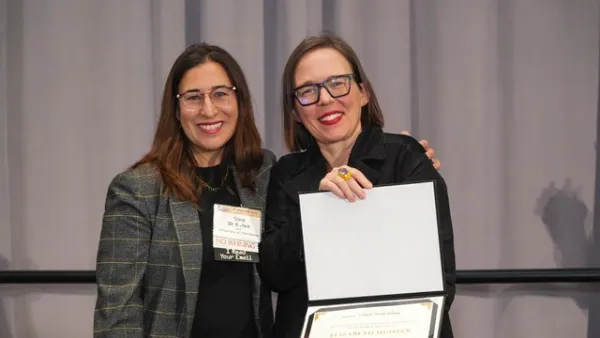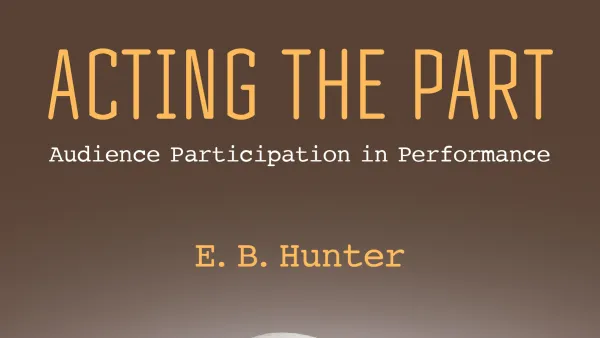Elizabeth Hunter is a critical theorist and digital maker exploring the future of live performance and emergent technologies. Her research asks what happens when we inhabit the space of a famous story, and the story seeps into our own.
Elizabeth Hunter is Assistant Professor in Drama, Director of Graduate Studies, and Director of the Fabula(b) Theatre + New Media Lab in the Performing Arts Department at WashU. Her first monograph, Acting the Part: Audience Participation in Performance (University of Michigan Press 2025), offers a new paradigm for understanding how audiences participate in immersive theater, from physical spaces like the Globe in London to digital spaces like social virtual reality. She is currently working on her next book project, which mounts the first scholarly analysis of digital resurrection—the use of AI and spatial computing to bring back the dead—as performance. Titled, “Death Is Obsolete: Staging Resurrection in the Age of AI,” this project explores how a critical lens of performance theory can illuminate the user roles and production choices inherent in digitally resurrecting all manner of bodies, from the corporeal to the architectural.
The theoretical side of Professor Hunter’s research complements her practice-led work as the Director of Fabula(b), where she leads an interdisciplinary team to create digital adaptations of canonical dramas and other famous stories as a mode of historiographic and dramaturgical analysis. The lab’s current project, “VISIBLE: Resurrecting Henry ‘Box’ Brown’s Moving Panorama, ‘Mirror of Slavery,’” is currently in prototyping.
Her digital projects have been supported by Microsoft, the Illinois Arts Council Agency, and the Center for Interdisciplinary Research in the Arts, and her scholarship has been published in Text and Performance Quarterly, the International Journal of Performance Arts and Digital Media, Theatre Topics and the edited book Research Methods in the Digital Humanities. With Scott Magelssen, she is co-editor of Enveloping Worlds: Toward a Discourse of Immersive Performance (University of Michigan Press 2025), the first edited collection from a university press dedicated to contemporary immersive theatre and performance.
Before joining Washington University, Professor Hunter was Assistant Professor of Theatre Studies at San Francisco State University. She has also been head of development for an independent film company in New York City and the founding artistic director of an immersive Shakespeare company in a restored blast furnace in Birmingham, Alabama.






